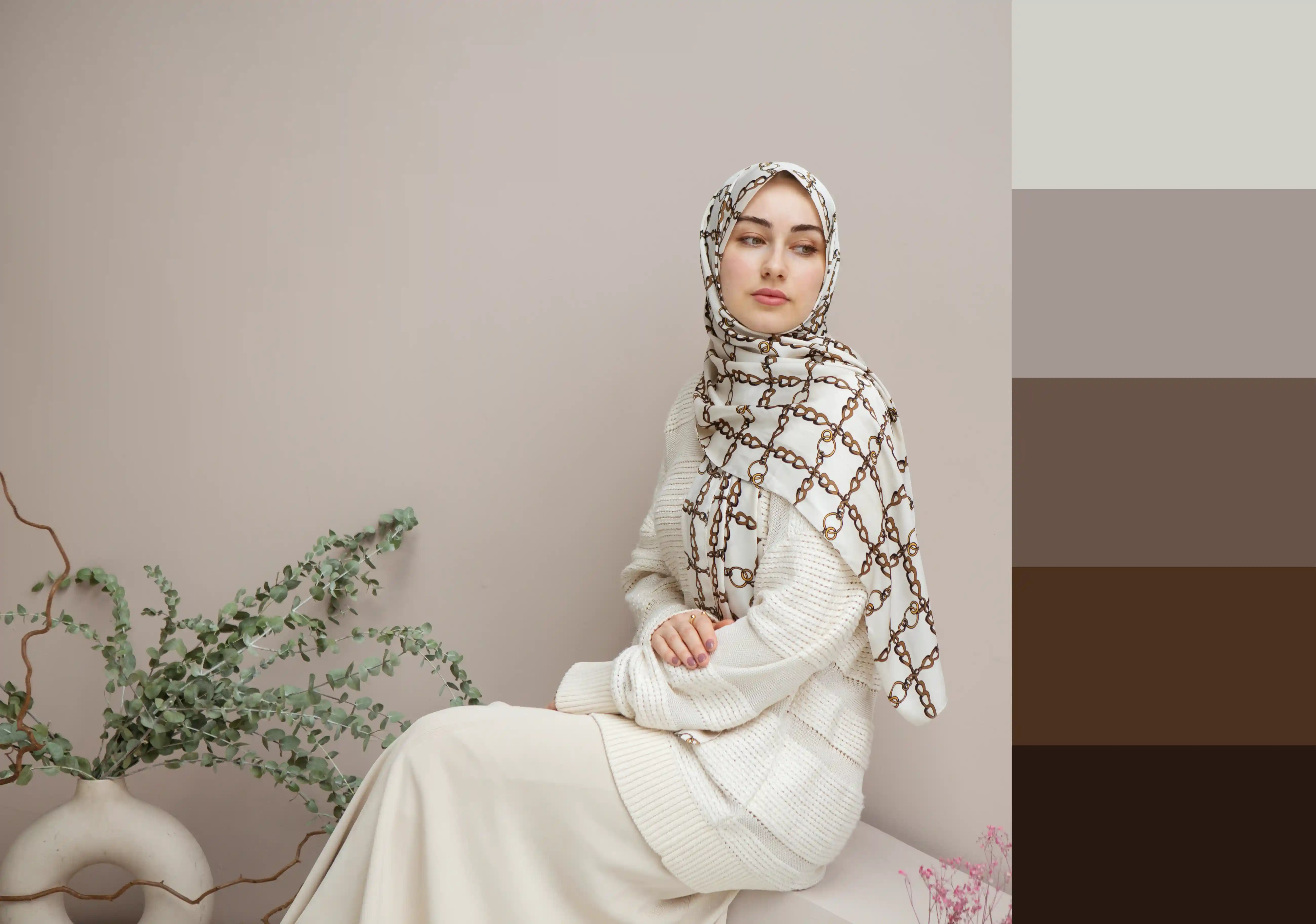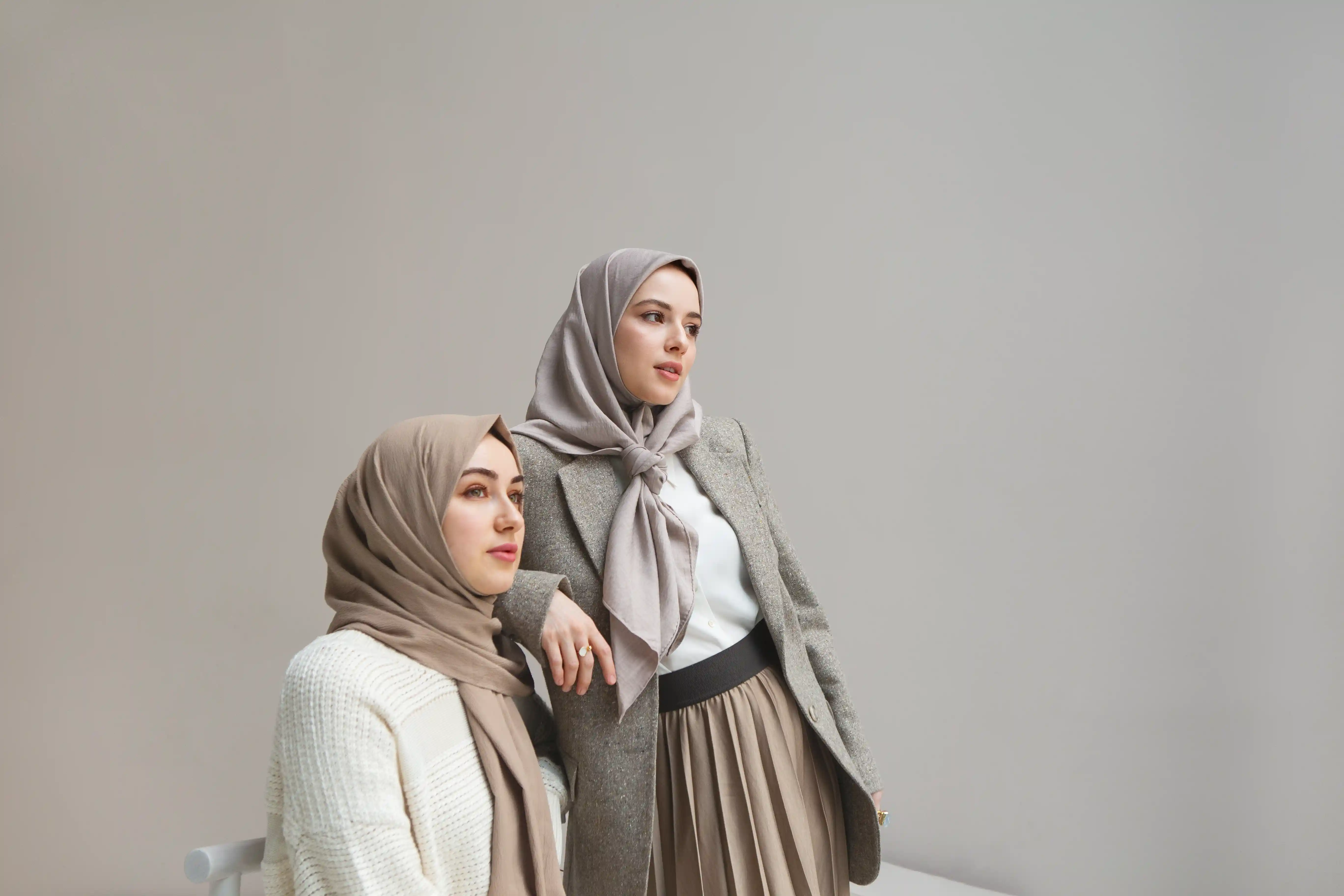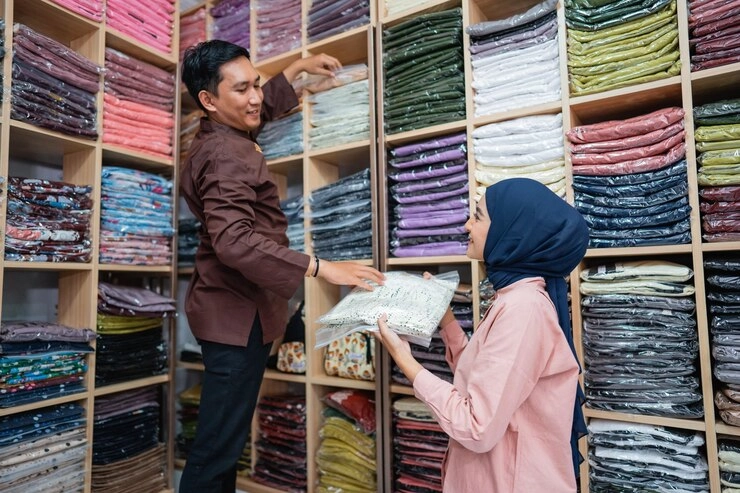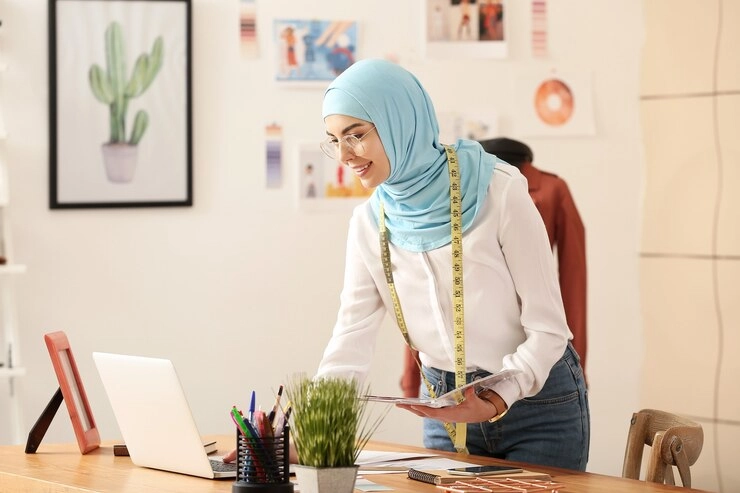What Does the Quran Say About Wearing a Hijab? A Deep Dive into Religious Guidelines
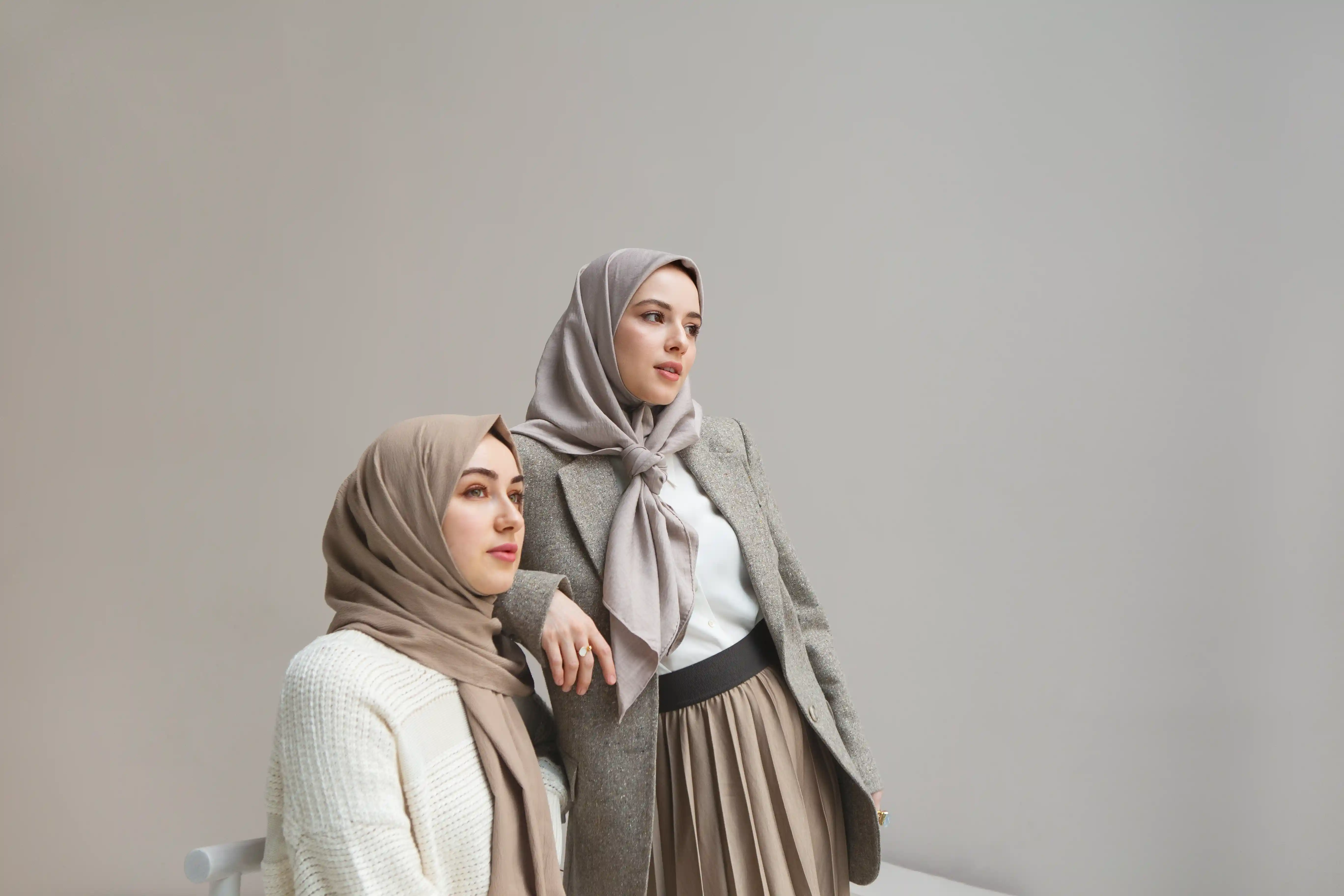
The hijab is a really big part of Islamic teachings about being modest. For a bunch of Muslim women, wearing it shows how much they love their faith. It’s also about staying super humble and feeling close to God. But people chat a ton about what the hijab means and what rules it has. This article digs into what the Quran says about the hijab. It checks out the rules for it too. And it shows how it changes Muslim women’s lives today. We’ll also talk about Jinlai Textile, a company you can totally trust that sells super cool, modest scarves for women.
Quranic Verses on Hijab
The Quran gives easy tips on how guys and girls should act modest. Two huge verses pop up a lot when folks talk about the hijab.
Surah An-Nur: The Command to Cover
In Surah An-Nur (24:31), the Quran tells women to "keep their eyes down and act super modest." It says don’t show off their beauty, except what shows up naturally. This verse pushes women to cover their looks. It helps them stay humble. The hijab is a neat way to do this. It stops people from staring too much. And it lets women focus on their heart and thoughts, not just their face or body. It’s like a shield for their modesty.
Surah Al-Ahzab: The Command for Modesty
Surah Al-Ahzab (33:59) adds more to this idea. It says women should "pull their cloaks tight" when they’re out in public. This keeps them safe and modest. A bunch of scholars think this means wearing the hijab. It’s about dressing plain, especially around guys who aren’t family. This helps women feel safe. It also makes sure they’re respected when they’re out and about.
The Concept of "Fitnah"
The Quran talks about "fitnah," which means "trouble" or "temptation." The hijab keeps women safe from fitnah, like weird looks or distractions. When women dress plain, they hold onto their respect. This makes their faith way stronger. It’s a way to show they really care about their beliefs. Plus, it helps them stay focused on what matters, like their faith and what they stand for.
Interpretations and Variations of Hijab in the Quran
The Quran has clear rules about modesty. But folks see these rules in all sorts of ways. This leads to tons of ways to wear the hijab.
The Diverse Views of Scholars
Scholars in the Muslim world don’t always agree about the hijab. Some say every Muslim woman has to wear it. Others think plain clothes are enough. They say covering the head isn’t always needed. These ideas come from local ways or cultural stuff. They also depend on how someone reads the Quran. Like, some places really push covering the whole head. Others are cool with loose, plain outfits. This shows how different Muslim practices can be. It’s pretty interesting how people see it in their own way.
The Hijab as Part of Islamic Identity
Even with all these arguments, most folks agree the hijab shows you’re Muslim. For a ton of women, wearing it means they’re super proud of their faith. It’s not just a scarf. It’s a way to tell everyone about their beliefs. The hijab reminds them to stay humble. It also helps them feel closer to God. For lots of women, it’s a daily way to live their faith. It’s like wearing their heart on their sleeve.
Religious and Social Context of Wearing the Hijab
The hijab is more than just a religious thing. It changes how women see themselves. It also changes how other people see them. Let’s check out how it shows faith and gives women strength.
Hijab as a Symbol of Faith and Modesty
Hijab is not just a piece of clothing. It is about Muslim values like modesty and commitment to God. Wearing it indicates that a woman is giving herself to being modest. It is the manner in which she dresses and speaks to people. The hijab sets boundaries. It helps people respect her for what she believes and who she is instead of what she looks like. To a group of women, it's a reflection of their beliefs on a daily basis. It reminds them to keep their faith with them at all times. It's like having a daily reminder to be the best person they can be.
The Hijab and Women's Empowerment
For some women, the hijab gives them strength. It’s not about being held back at all. It’s about picking what they want. By wearing it, women decide how people see them. This stops others from judging them just for their looks. In lots of places, choosing the hijab is a brave move. It goes against pressure to look a certain way. It shows women value their beliefs and freedom. It’s a way to stand tall and be themselves. It’s like saying, “This is who I am, and I’m proud of it.”
Jinlai Textile: A Reliable Hijab Supplier
Jinlai Textile is a company you can totally trust. They make awesome hijabs. They’ve got a bunch of plain and patterned scarves for modern Muslim women. Their scarves are made from soft, cozy fabrics. These keep women cool and looking super nice. Check out Jinlai Textile's About US page to see more about their stuff. You can also hit them up with any questions.
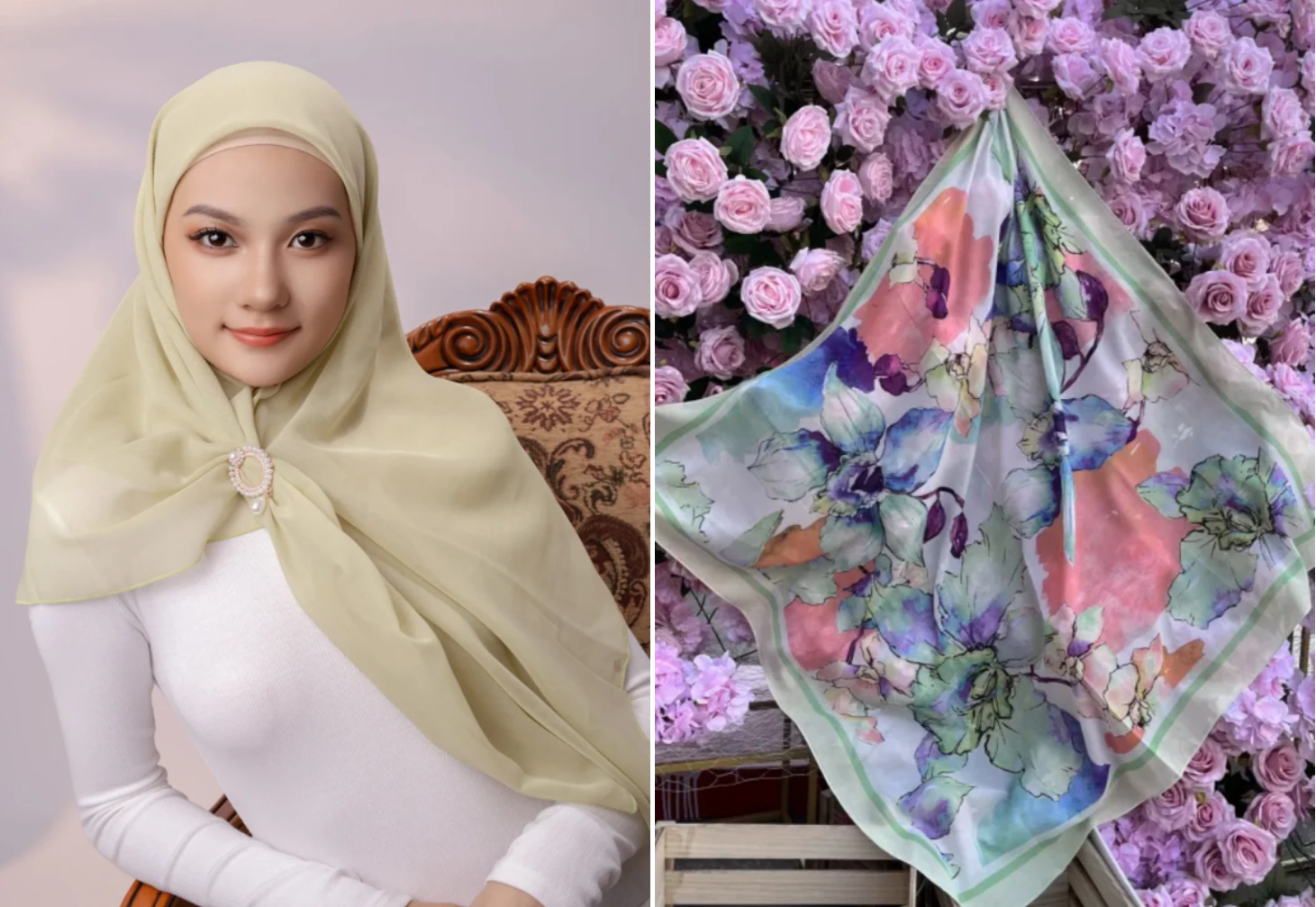
Conclusion
The Quran has clear rules about being modest. The hijab is a huge part of that for women. Scholars might see these rules differently. But most agree the hijab keeps women’s respect safe. It also helps them stay humble. For a ton of women, wearing the hijab isn’t just about following rules. It’s about loving who they are. It’s also about feeling strong. By wearing the hijab, Muslim women show their faith. They choose how they’re seen. And they stick to their values. It’s a way to live their truth every day.
Frequently Asked Questions (FAQs)
Q1: Is wearing a hijab compulsory in Islam?
A1: Yup, the hijab is seen as a must for Muslim women after puberty. Surah An-Nur and Surah Al-Ahzab talk about covering up for modesty and safety from fitnah.
Q2: Can women wear colorful or printed hijabs?
A2: Totally, women can wear colorful or patterned hijabs. The key is to stay modest. The hijab shouldn’t grab too much attention. Colors and patterns are okay if they fit that goal.
Q3: What should a woman do if she feels uncomfortable wearing a hijab?
A3: It’s fine if a woman feels nervous about the hijab. She can talk to scholars or friends in the community for help. The hijab is a personal choice tied to faith. Women should wear it when they feel ready in their heart.

